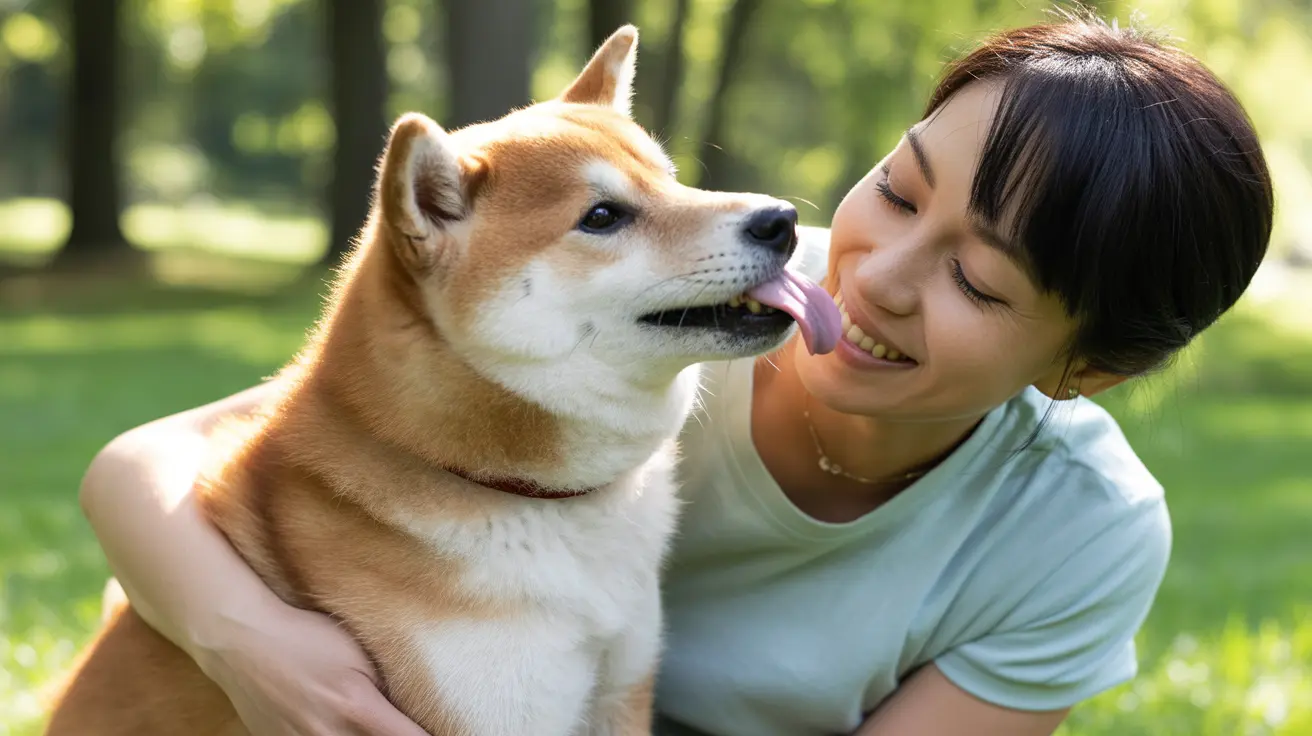The Science Behind Dog Licking Behavior
Dogs use licking as a fundamental form of communication and sensory exploration. When your dog licks you, they're engaging in a behavior that's deeply rooted in their evolutionary history and serves multiple purposes in their social interactions.
Scientific research has shown that licking releases endorphins in dogs, creating a calming effect similar to how humans might feel when receiving a hug. This biological response helps explain why dogs often engage in this behavior during moments of bonding or stress.
Common Reasons Your Dog Won't Stop Licking
Showing Affection and Building Bonds
Dogs often lick their owners as a natural expression of love and attachment. This behavior mimics the nurturing actions of mother dogs with their puppies and serves to strengthen the human-animal bond through the release of oxytocin, often called the "love hormone."
Seeking Attention or Resources
Many dogs learn that licking is an effective way to get their owner's attention or to request food, treats, or playtime. This behavior can become reinforced if it consistently results in the desired response from their human companions.
Medical and Behavioral Concerns
Anxiety and Stress Signals
Excessive licking can be a sign of anxiety, stress, or emotional distress in dogs. If your pet's licking behavior suddenly increases or becomes compulsive, it might indicate they're struggling with environmental changes or emotional challenges.
Physical Health Issues
Sometimes, intense licking behavior can signal underlying medical conditions such as:
- Gastrointestinal problems
- Skin allergies or irritations
- Dental issues
- Pain or discomfort
- Neurological conditions
How to Address Excessive Licking
Training and Behavioral Modification
To manage excessive licking, consider these effective strategies:
- Redirect your dog's attention to appropriate activities
- Reward calm, non-licking behavior
- Establish consistent boundaries
- Provide mental and physical enrichment
When to Seek Professional Help
If excessive licking persists despite your best efforts, consult with a veterinarian or professional dog behaviorist. They can help determine if there are underlying medical issues or develop a specialized behavior modification plan.
Frequently Asked Questions
Why is my dog licking me so much — is it a sign of affection or something else?
While dog licking often indicates affection, it can also signal anxiety, attention-seeking behavior, or medical issues. The context and frequency of the licking help determine its true meaning.
Could my dog's excessive licking be caused by anxiety or stress?
Yes, excessive licking can be a sign of anxiety or stress in dogs. Look for other signs like pacing, whining, or changes in appetite to help identify if anxiety is the root cause.
When should I be concerned about my dog's licking behavior and see a vet?
Consult a vet if your dog's licking becomes obsessive, causes skin irritation, or is accompanied by other behavioral changes or physical symptoms.
How can I stop my dog from licking me too much without upsetting them?
Redirect their attention to toys or activities, ignore the licking behavior, and reward them when they're calm. Consistency and positive reinforcement are key to modifying this behavior.
What medical issues can make a dog lick excessively, and how are they diagnosed?
Medical issues like allergies, gastrointestinal problems, dental disease, or pain can cause excessive licking. Diagnosis typically involves a physical examination and possibly additional tests determined by your veterinarian.
Conclusion
Understanding why your dog is licking excessively is the first step in addressing this behavior effectively. While occasional licking is normal and often a sign of affection, persistent or sudden changes in licking behavior warrant attention and possibly professional intervention. By maintaining awareness of your dog's normal behavior patterns and responding appropriately to excessive licking, you can help ensure your pet's physical and emotional well-being.






